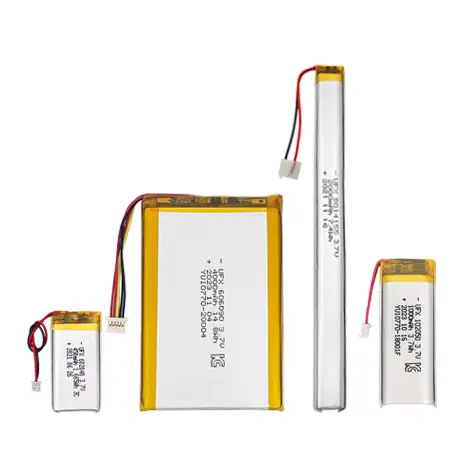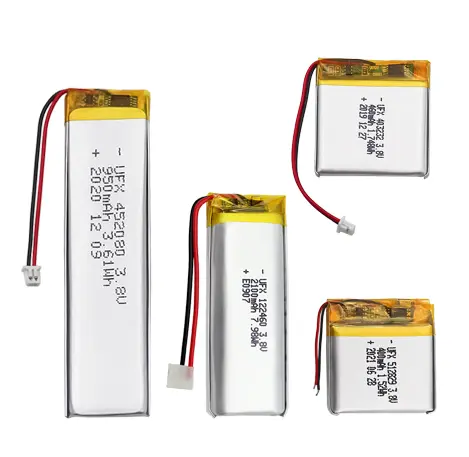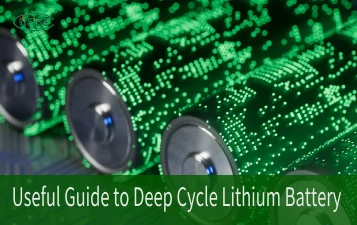Regarding high-performance batteries for various applications, LiPo (Lithium Polymer) and LiHv (High Voltage Lithium Polymer) batteries have gained significant popularity. These advanced power sources offer impressive energy storage capabilities. People widely use them in the fields of hobbyist drones, RC cars, and other electronic devices. Understanding the differences between LiPo and LiHv batteries is crucial for making informed decisions regarding their usage.
This article will explore battery types’ features, advantages, and disadvantages to determine which is better suited for specific applications.
Part 1. What is a LiPo battery?
LiPo batteries are rechargeable batteries that utilize lithium-ion technology. They consist of multiple cells, each containing a positive electrode (cathode), a negative electrode (anode), and an electrolyte. The cells are typically packaged in a flexible polymer casing, allowing for a compact and lightweight design.

LiPo Battery Pros and Cons
LiPo batteries offer several advantages:
- High Energy Density: LiPo batteries have a high energy density, allowing them to store more power in a smaller size.
- Lightweight: The flexible polymer casing makes LiPo batteries significantly lighter than other battery types, making them ideal for applications where weight is a concern.
- High Discharge Rates: LiPo batteries can provide high discharge rates, allowing for increased power output and performance in demanding applications.
- Versatile Shape: The flexible casing enables LiPo batteries to be manufactured in various shapes and sizes, making them adaptable to different device designs.
- No Memory Effect: Users can recharge LiPo batteries anytime without affecting their overall capacity because they do not suffer from memory effects.
However, LiPo batteries also have some limitations:
- Sensitivity to Overcharging: LiPo batteries are sensitive to overcharging, leading to swelling, overheating, or even fire hazards if not properly handled.
- Limited Lifespan: LiPo batteries have a limited lifespan, often measured in charging cycles, after which their capacity gradually decreases.
- Storage Requirements: LiPo batteries require proper storage conditions, such as avoiding extreme temperatures, to maintain performance and prevent degradation.
Part 2. What is a LiHv battery?
LiHv batteries, also known as High Voltage Lithium Polymer batteries, are an advanced variant of LiPo batteries. Designers create them to operate at higher voltages, providing increased power output and voltage stability.

LiHv Battery Pros and Cons
LiHv batteries offer several advantages over traditional LiPo batteries:
- Higher Voltage: LiHv batteries have a higher nominal voltage, typically around 3.8 volts per cell, compared to 3.7 volts per cell in LiPo batteries. This higher voltage allows for increased power output and improved performance.
- Enhanced Power Delivery: LiHv batteries can deliver power more efficiently, reducing voltage sag and better performance under heavy loads.
- Extended Lifespan: LiHv batteries often have a longer lifespan than LiPo batteries, thanks to their improved chemistry and voltage stability.
- Compatibility: LiHv batteries are generally backward compatible with devices designed for LiPo batteries, allowing users to upgrade their power source without replacing existing equipment.
However, LiHv batteries also have a few considerations:
- Higher Cost: Due to their advanced features and improved performance, LiHv batteries are usually more expensive than LiPo batteries.
- Increased Voltage: The higher voltage of LiHv batteries may not be suitable for devices not designed to handle the higher voltage levels, potentially causing damage or malfunction.
Part 3. What are the differences between LiHv and LiPo batteries?
Chemical Composition
LiHv batteries, short for Lithium High Voltage, typically contain more cobalt than LiPo (Lithium Polymer) batteries. This composition contributes to LiHv’s higher energy density and voltage stability.
Voltage Output
LiHv batteries generally offer a higher nominal voltage compared to LiPo batteries. While LiPo batteries typically have a nominal voltage of 3.7 volts per cell, LiHv batteries can have a nominal voltage ranging from 3.8 to 4.35 volts per cell.
Energy Density
Due to their chemical composition and design, LiHv batteries tend to have a higher energy density than LiPo batteries. This means they can store more energy per unit volume or weight, making them suitable for applications where space and weight are critical factors.
Charging Voltage
LiHv batteries require special chargers capable of delivering higher charging voltages than those used for LiPo batteries. Charging a LiHv battery with a LiPo charger can result in overcharging and potential damage to the battery.
Internal Resistance
LiHv batteries typically have lower internal resistance compared to LiPo batteries. This lower resistance allows for faster discharge rates and better performance, especially in high-demand applications like RC vehicles or drones.
Safety Considerations
While both types of batteries pose certain safety risks, LiHv batteries are generally considered safer than LiPo batteries due to their higher voltage stability and lower likelihood of swelling or catching fire during use or charging.
Cost
Due to their advanced chemistry and higher performance characteristics, LiHv batteries are often more expensive than LiPo batteries. However, their benefits may justify the higher cost for applications where performance and energy density are crucial.
Application Suitability
Users commonly use LiHv batteries in high-performance RC models, drones, and other applications requiring maximum power and energy density. On the other hand, LiPo batteries are more widely used across consumer electronics and hobbyist applications due to their balance of performance, cost, and safety.
Part 4. FAQs
-
How to charge LiHv battery?
To charge a LiHv battery, you’ll need a charger specifically designed for LiHv batteries. Connect the battery to the charger following the manufacturer’s instructions, making sure to match the polarity correctly. Set the charger to the appropriate voltage and current settings for your LiHv battery, then initiate the charging process. Monitor the charging progress carefully and ensure you do not overcharge the battery. -
Can I charge LiHv batteries with a LiPo charger?
Charging LiHv batteries with a LiPo charger is only recommended if the LiPo charger explicitly supports LiHv batteries. LiHv batteries require higher charging voltages than LiPo batteries, and using a LiPo charger could result in overcharging and damage to the LiHv battery. -
What is the range of a LiHV battery?
The range of a LiHv battery refers to its nominal voltage, which typically ranges from 3.8 to 4.35 volts per cell. -
What is the fully charged voltage of 3S LiHV?
A fully charged 3S LiHv battery would have a total voltage of approximately 11.4 to 13.05 volts, depending on the specific voltage range of the LiHv cells used. Each cell in a 3S LiHv battery would fully charge to around 3.8 to 4.35 volts.
Related Tags:
More Articles

Overview of Deep Cycle Lithium Battery
In this article, we explore the life, voltage, capacity, and charging considerations of deep cycle lithium batteries.
How Long do Lithium Batteries Last?
How long do lithium batteries last? we will explore the factors that influence the lifespan of lithium batteries and provide insights into their longevity.
How to Choose the Best LiFePO4 Battery?
Choose LiFePO4 batteries for superior performance, safety, and versatility in EVs, UPS, and backup power. This guide helps you make informed decisions.
Get 12v Lithium Car Battery As a Power Source for the Ride
Make the right choice for your vehicle's battery needs by installing a 12 volt lithium car battery. You will enjoy maintenance-free longevity with this change.
Everything About A Small Lithium Ion Battery
Discover the features, uses & future potential of a small lithium ion battery. A compact and tiny powerhouse ideal for smartphones, wearables, drones & more.





